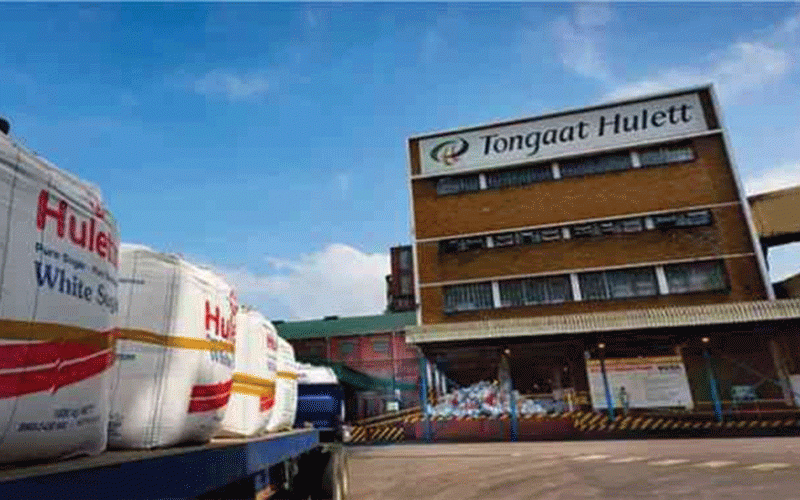
THE prevailing food systems in Africa are borrowed, adopted and imposed, which means that it infringes on the food sovereignty of the people. This is due to emphasis being placed on food security to the detriment of health and well-being, environment, heritage and humanism (Ubuntu). Therefore, food systems which once defined the African people’s identity, culture, destiny and aspirations have either slowly disappeared, neglected or abandoned because they were regarded as not foody enough.
While industrialisation and globalisation are key for economic development and not at all a bad practice, food integration, respect and acknowledgement of its origin and placement in the society define the people who own the rights of the food systems.
Industrialisation and modernisation help the African people to keep pace and be abreast with the rest of the world, but they tend to abandon and disrespect the people’s culture and environmental sanctity.
Food modernisation disconnects people from their culture, tastes and worldviews. In this regard, while African food stuffs are supposed to define what the African people are and who they are, food adulteration and negation now project what the African are not.
The term food security has somehow clouded the people’s worldviews and has taken the people out of their cultural banks and experiences. African nations are guilt of surrendering their food rights and ownership to a prescriptive world and in the name of a balanced diet.
Food colonisation has been a very powerful and deceptive tool, highly imposed and misinformed. Captured Africans now treat their own local foodstuffs with disdain, scorn, suspicions and lack of confidence.
Any food system should introduce measures of protecting the environment and strengthen the intrinsic value of nature. While pesticides and herbicides are good, they have side effects that leave the soils drunk, poisoned and damaged. The African food capture and embezzlement has resulted in a widening urban-rural divide. While the urbanites can afford commercialised foodstuffs because of disposable income, the rural communities find it difficult to cope due to overpricing and lack of disposable income.
The rural poor and most of the marginalised small-scale farmers have not benefited enough from the overpriced and processed foodstuffs.
- True independence requires a change in trade relations with former colonisers
- Village Rhapsody: African countries must scrap passports, abolish border restrictions
- Edutainment mix: Wisdom buried in mythology: An Alchemic experience at the Nyamatsatse festival
- Edutainment mix: Appreciating aesthetics of cultural pluralism, heritage
Keep Reading
For these reasons, the poor and the marginalised are always at the bottom of the food chains. The neglected and orphaned indigenous food systems were made to be less marketable, shunned and doomed while the marketable processed foods are mediated by middlemen, advertising and branding so that they look appealing.
African food systems are still visualised in terms of exotic and indigenous, wild or bush, as in wild fruits, bush meat or foods of less nutritional value, lacking balance and standardisation.
It is only when things go wrong that the masters of food capture and prescription remember the intrinsic value of indigenous foodstuffs and advise communities to go for small-grains, short-term local varieties with relevance to the local environment, climate and conditions.
The overrated and hyped processed foods have contributed to environmental damage and ecological harm.
Today the world is full of sick people due to over-processed foods with ailments like high blood pressure, sugar diabetes and cancer, among others.
Growing food, tendering, harvesting, transportation and manufacturing of these food stuffs contribute to carbon emissions, pollution and environmental damage. This happens every year and every time, as such we are living in a sick and toxic world requiring environmental healing and cleansing.
At the end of the day, the African has no food ownership, food rights and entitlements because their original foods need to be quality controlled, assured and certified by the captured standards, baselines and benchmarks.
People are people because of what they eat and if what they eat becomes lethal, life threatening, disease-induced then their livelihoods are in danger.
All global food systems are prescribed, determined and priced somewhere in Zurich, Rome, New York and Paris, among others, while the African continent is to conform to the food capture instructions and standards. Processed and refined foodstuffs are now the core of human feeding and nutritional transitions contributing to a globalised diet. Since the processed food regimes took over, shaped and influenced African food systems, the traditional food systems need a complete and spirited overhaul and redemption.
In this regard, traditional food spaces and inventories are required to fill in the food gaps created by the processed food regimes, cultures and machinations. The African voice is needed to communicate, harness, redefine and revive indigenous food banks.
Traditional food fares reminiscent of what is happening in Zimbabwe, driven by First Lady Auxilia Mnangagwa, is the way to go as this brings us back to the basics and from the system that was captured and commodified.
Africa needs a strong and unified voice towards the global food policy, for rebirth, redefinition, new impetus, respect and value addition of African food sovereignty. African countries need to come up with a strong indigenous food policy, inventory, patented and documented food regimes that can help to shape the continent’s food rights and ownership.
Peter Makwanya is a climate communicator. He writes in his capacity and he can be contacted on: [email protected].











